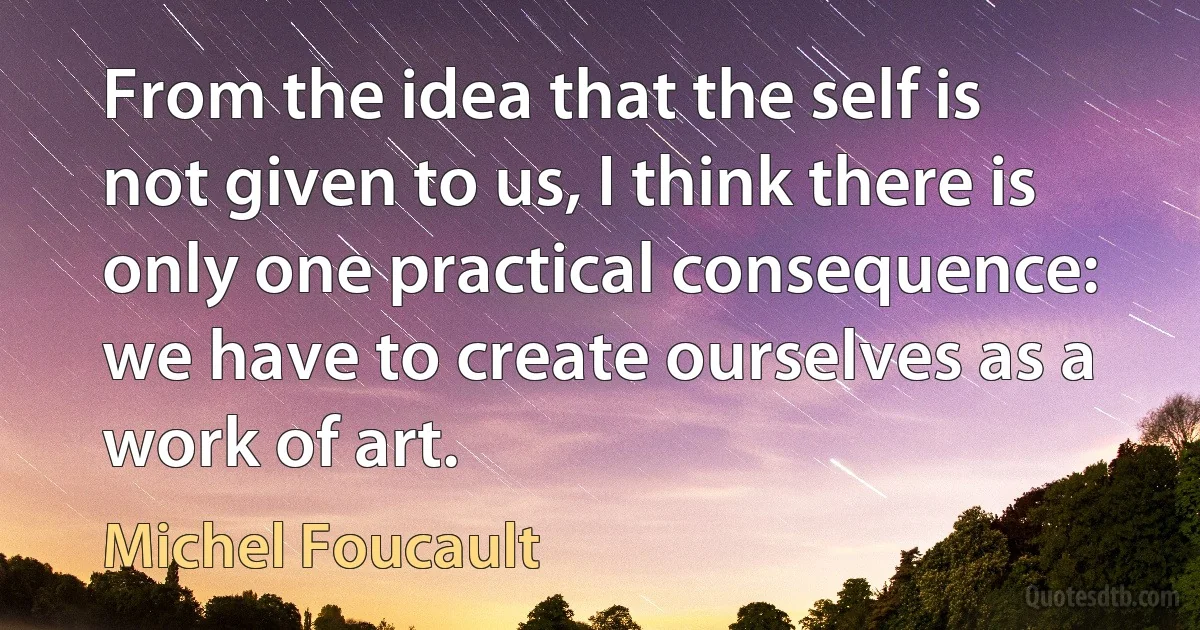Consequence Quotes - page 13
In a technocracy, tools play a central role in the thought-world of the culture. Everything must give way, in some degree, to their development. The social and symbolic worlds become increasingly subject to the requirements of that development. Tools are not integrated into the culture; they attack the culture. They bid to become the culture. As a consequence, tradition, social mores, myth, politics, ritual, and religion have to fight for their lives...

Neil Postman
We shall have several hard fights in the H. of Cs. this week and next, in some of which I fear we shall be beat, but whether we are or not I think it certain that in about a fortnight we shall come in; If we carry our questions we shall come in in a more creditable and triumphant way, but at any rate the Prince must be Regent and of consequence the Ministry must be changed...I am rather afraid they will get some cry against the Prince for grasping as they call it at too much power, but I am sure that I can not in conscience advise him to give up any thing that is really necessary to his Government, or indeed to claim any thing else as Regent, but the full power of a King, to which he is certainly entitled.

Charles James Fox
Pride in one's work carries with it a determination to accept the demands imposed by that work: in the case of philosophy to follow the argument where it leads, in the case of history to discover what actually happened, in the case of literature to explore to its depths a particular theme. In consequence, this sort of pride demands freedom: it has to be laid low in any authoritarian State. The historian, in such a system, has to conform to official interpretations of the past, the philosopher to dogmas, the writer to stereotypes of human action, the craftsman to "production-schedules.” More subtly, attempts are made to lay pride low in a consumer's society: the film-director, the novelist, the craftsman are called upon to produce "what will sell” at whatever cost to their pride in workmanship.

John Passmore
...against which we should direct all our force, the navy of France: in the destruction of her marine we might see some hope of recovering America; but while our army remained in that country, we were to expect nothing from its operations. On the continent of Europe, it might be employed; there we might contend with France, in a manner that would make her feel that her own consequence was at stake. But the old Whig system of alliances on the continent had been given up, and we were left to fight all our battles by ourselves. If these alliances were renewed, France might then be taught, that rashness, not prudence, had made her enter into the American confederacy...America...might be won in Europe, while England might be ruined in America.

Charles James Fox
If the mainspring of popular government in peacetime is virtue, the mainspring of popular government in revolution is both virtue and terror: virtue, without which terror is disastrous; terror, without which virtue is powerless. Terror is nothing but prompt, severe, inflexible justice; it is therefore an emanation of virtue; it is not so much a specific principle as a consequence of the general principle of democracy applied to our homeland's most pressing needs.

Maximilien Robespierre
A utopia of judicial reticence: take away life, but prevent the patient from feeling it; deprive the prisoner of all rights, but do not inflict pain; impose penalties free of all pain. Recourse to psycho-pharmacology and to various physiological ‘disconnectors', even if it is temporary, is a logical consequence of this ‘non-corporal' penalty.

Michel Foucault
There has been an inversion in the hierarchy of the two principles of antiquity, "Take care of yourself” and "Know yourself.” In Greco-Roman culture, knowledge of oneself appeared as the consequence of the care of the self. In the modern world, knowledge of oneself constitutes the fundamental principle.

Michel Foucault
The choice you make this November will shape great things, historic things, and those things will determine the most intimate and important aspects of every American life and every American family. This is an election about America, and it is an election about the American family. All elections matter. This one matters a great deal. Over the years of our nation's history, choices our fellow citizens have made have changed the country's course–they were turning points of defining consequence.

Mitt Romney
Just as the commandment "Thou shalt not kill” sets a clear limit in order to safeguard the value of human life, today we also have to say "thou shalt not” to an economy of exclusion and inequality. Such an economy kills. How can it be that it is not a news item when an elderly homeless person dies of exposure, but it is news when the stock market loses two points? This is a case of exclusion. Can we continue to stand by when food is thrown away while people are starving? This is a case of inequality. Today everything comes under the laws of competition and the survival of the fittest, where the powerful feed upon the powerless. As a consequence, masses of people find themselves excluded and marginalized: without work, without possibilities, without any means of escape.

Pope Francis
This is the message of critics not only in Europe, but also in the United States itself, where anti-Americanism continues to prosper among university, journalistic, and literary elites. But in Europe, these ideological reasons for blaming America first are multiplied by simple jealousy of American power. The current American "hyperpower" is the direct consequence of European powerlessness, both past and present. The United States fills a void caused by our inadequacies in capability, thinking, and will to act.

Jean-François Revel
To educate some to the highest degree, and leave the mass wholly uncultivated, as you did, made the gap between them almost like that between different natural species, which have no means of communication. What could be more inhuman than this consequence of a partial enjoyment of education!

Edward Bellamy
It Suicide is the deliberate or the hurried action of the man who is trying to get out of a trouble and escape from it. Yet he cannot escape from it...He is wide awake on the other side of death, exactly the same man he was a moment before... no more changed than if he had merely taken off his coat. The result of his losing the physical body is that his capacity for suffering is very much increased.... All the part of him that drove him to suicide is there... The result of that is that he has still in him everything which made him commit the act; the consequence of this is that he keeps on committing it, going through the whole of the trouble that drove him up to the final act.

Annie Besant



